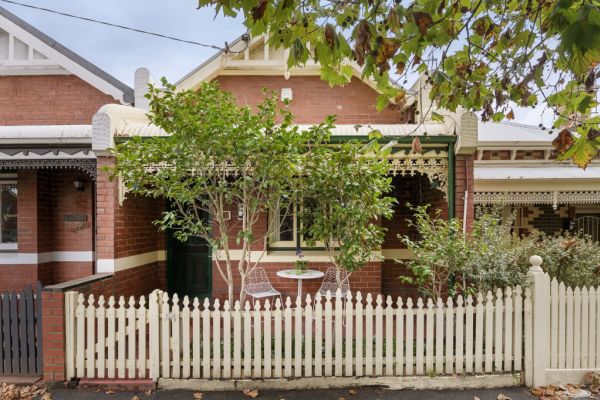 Vietnamese
Vietnamese
Renters in casual work during COVID-19 need more help to stay at home in lockdowns, tenant groups warn
Renters in casual work are likely to have exhausted their savings and need more support to stay at home through coronavirus outbreaks, tenant and landlord groups warn.

Some renters are struggling to pay the bills during Melbourne's fourth lockdown. Photo: Nelson Alexander
Melbourne’s lockdown this week is the first substantial COVID-19 outbreak since the end of JobKeeper, the reduction in JobSeeker and the expiry of state-based eviction moratoriums. Although the Victorian government has offered a business support package, it does not target workers.
But with future outbreaks possible anywhere around the country as the vaccine rollout lags, a raft of measures is needed to keep renters in their homes and avoid the public health consequences of overcrowding and homelessness, tenant advocates said.
Some Melbourne renters are already struggling to pay their rent, with many working in casual jobs and in temporarily closed industries, such as hospitality, events or fitness, Tenants Victoria chief executive Jennifer Beveridge said.
“There are lots of businesses who employ casual staff who have closed their doors this time because there’s no JobKeeper,” Ms Beveridge said.
“People don’t have savings this time around. Lots of people drew down on their savings during last year’s long lockdown.
“We heard in the February lockdown people were looking forward to working some longer shifts over that Valentine’s Day weekend to recoup some lost income. They lost out then.”
Some tenants have more complex situations, such as being on a payment plan to backpay unpaid rent from 2020, which is then in jeopardy from this week’s lost income, she said.
The eviction moratorium has expired, and she encouraged renters who get a notice to vacate to seek help from her group’s resources or a community legal centre.
“We need some protections in place to ensure people don’t lose their homes,” she said.
“This is still a public health issue, and we need people to be able to stay at home safely, and we know that overcrowding and having lots of people indoors adds to the risk of this illness.”

During last year’s extended Melbourne lockdown, many renters exhausted their savings. Photo: JOE ARMAO
A separate group, the Renters and Housing Union, is calling for a rental amnesty for tenants affected by this lockdown, a reinstatement of last year’s COVID-19 rent protections, state stimulus payments and the return of JobKeeper.
“Our members are disproportionately affected by insecure work and rental stress on a good day,” RAHU secretary Eirene Tsolidis Noyce said.
“Once we go back into lockdown, particularly without those support measures in place like they were last year, even a couple of days pay lost creates incredible insecurity.”
She is dealing with cases of low-income renters who have accrued as much as $10,000 to $20,000 in rent debt they struggle to repay and with better-paid renters who have drained their superannuation savings to cover rent through the pandemic.
“It’s an inadequate measure to announce a lockdown that is much needed and not provide the support measures. It’s an inadequate response to assume we can pay while we can’t work.”
One approach could be a suite of measures that switch on when there is a lockdown, advocacy group Better Renting suggested.
For example, rent could be waived for the week of a snap lockdown, and property investors’ mortgage interest repayments delayed or deferred, executive director Joel Dignam said.
Evictions should not take effect during lockdowns, he added.
“A lot of Victorians are finding this lockdown doesn’t get easier. It even gets harder,” the Canberra-based advocate said.
“And it’s made even harder by not knowing how you’re going to make ends meet.”
Housing researcher Chris Martin makes a similar suggestion: suspend rents in part or whole when there’s a comprehensive lockdown that stops people from working, and suspend landlords’ interest payments for the same period.
He points to pre-pandemic research that found about a quarter of private renters had less than $500 saved for an emergency.
“So, a week without pay is a long time for those people,” the senior research fellow at the UNSW City Futures Research Centre said.
Eviction moratoriums could come into force during a lockdown, and a permanent change could be to move away from no-grounds evictions so that all terminations had to be based on grounds and the level of scrutiny to evict someone would be higher, he said.
Although the focus this week is on COVID-19, other disasters such as bushfires and floods have exposed the rental sector as not very resilient to disasters and landlords as often heavily indebted, Tenants’ Union of NSW chief executive Leo Patterson Ross said.
A permanent change could be to recognise property ownership as a business and introduce standards about running that business.
Landlords would then need to hold insurance – or be part of a hardship fund – to cover lockdowns or other economic crises, he suggested.
And banks would lend to landlords on the assumption that they had cash reserves to cover repairs and maintenance and that the rent collected might not be consistent in a disaster.
“We’ve seen it with bushfires, we’ve seen it with flooding, we’ve seen it with COVID,” he said. “When things go wrong at the moment, landlords just don’t have the capacity to carry it, and the government doesn’t provide support in the way that’s needed.”
Real Estate Institute of Australia president Adrian Kelly expects governments to assist tenants during lockdowns and noted the Victorian government did this through 2020.
“It’s good for the tenant, but it flows through to the property owner who also has bills to pay and a mortgage to pay,” Mr Kelly said.
He said although some tenants had ended up in rental arrears, not every tenant was affected, and the problem was not as widespread as first feared.
Some tenants had moved out of their homes, and many moved from capital cities to regional areas searching for cheaper housing, he said.
“Now we’ve got this issue [in the regions] where we don’t have enough rental properties to go around.”
By ELIZABETH REDMAN

